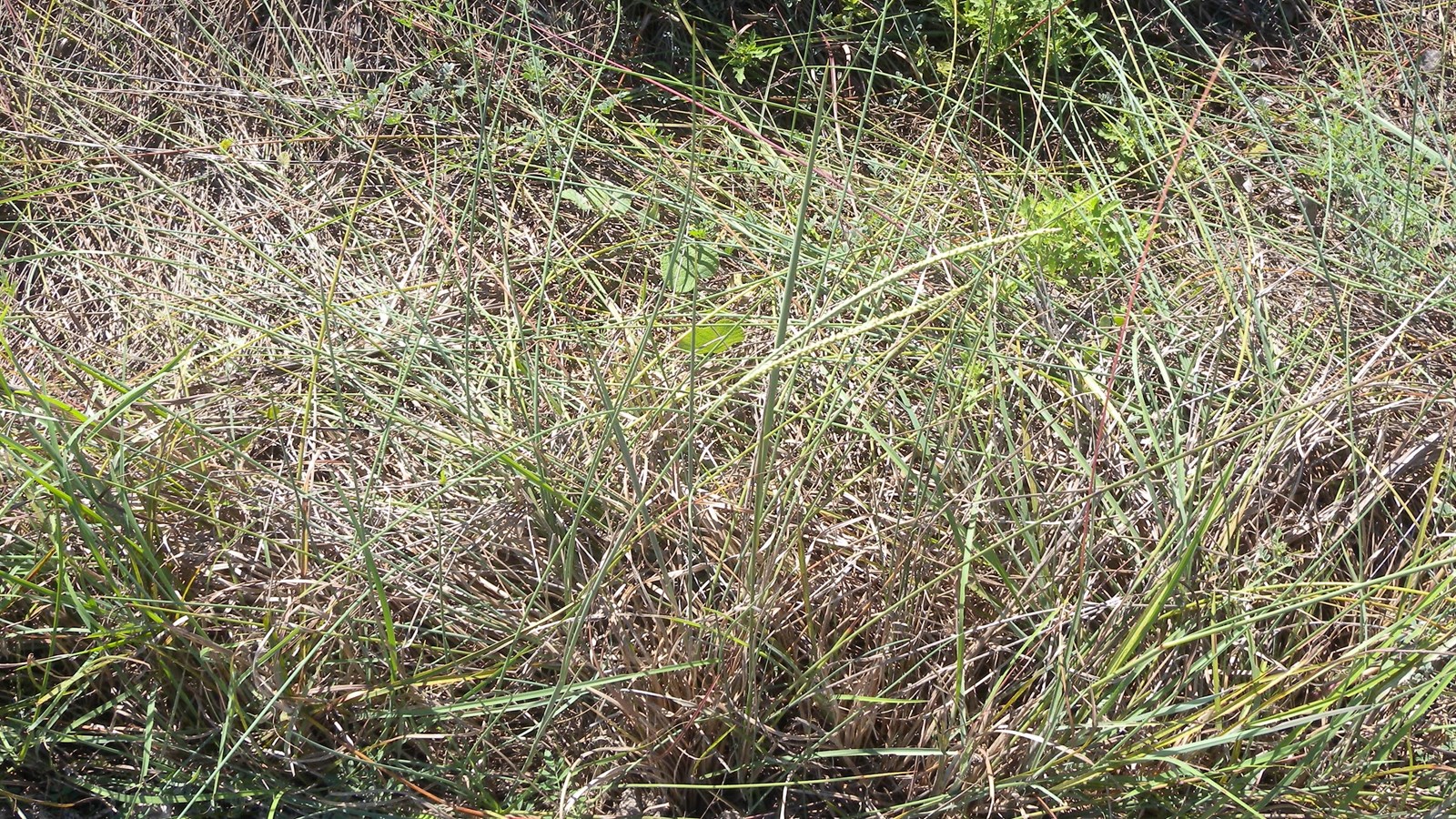Last updated: March 10, 2024
Place
Stop 11: Gulfdune Paspalum (Paspalum monostachyum)

Scenic View/Photo Spot, Wheelchair Accessible
Common Name: Gulfdune Paspalum
Scientific Name: Paspalum monostachyum
Family Name: Poaceae
Duration: Perennial
Size: Up to about 4 feet tall
Leaf Arrangement: Alternate
Blooming Months: Spring, Summer, Fall
Distribution: FL, LA, MS, TX
General Description
Gulfdune paspalum, Paspalum monostachyum, is the second most common grass on the island behind the seacoast bluestem and is also commonly known as gulfdune crowngrass. It is distinguished from similar Paspalum species by its numerous flowering branches, its purple-colored spikelets, and by its linear leaves. This grass grows in sand and muck soils on coastal sand dunes, prairies, marshes, and disturbed habitats of the southern coastal plain from eastern Mexico to Florida.
Park Wildlife Ecology/Connections
Because of its abundance in the grasslands of the island, Paspalum monostachyum serves in tandem with seacoast bluestem to provide dense cover for a variety of small animals.
North American Ethnobotany
Limited information about the historical and cultural uses of gulfdune paspalum has been recorded in common text sources. This does not mean that Native American people did not use it, only that information regarding its use is not as circulated. Other species of Paspalum were used by Native American people, like the Kiowa people, as a valuable fodder and pasture plant for livestock.
